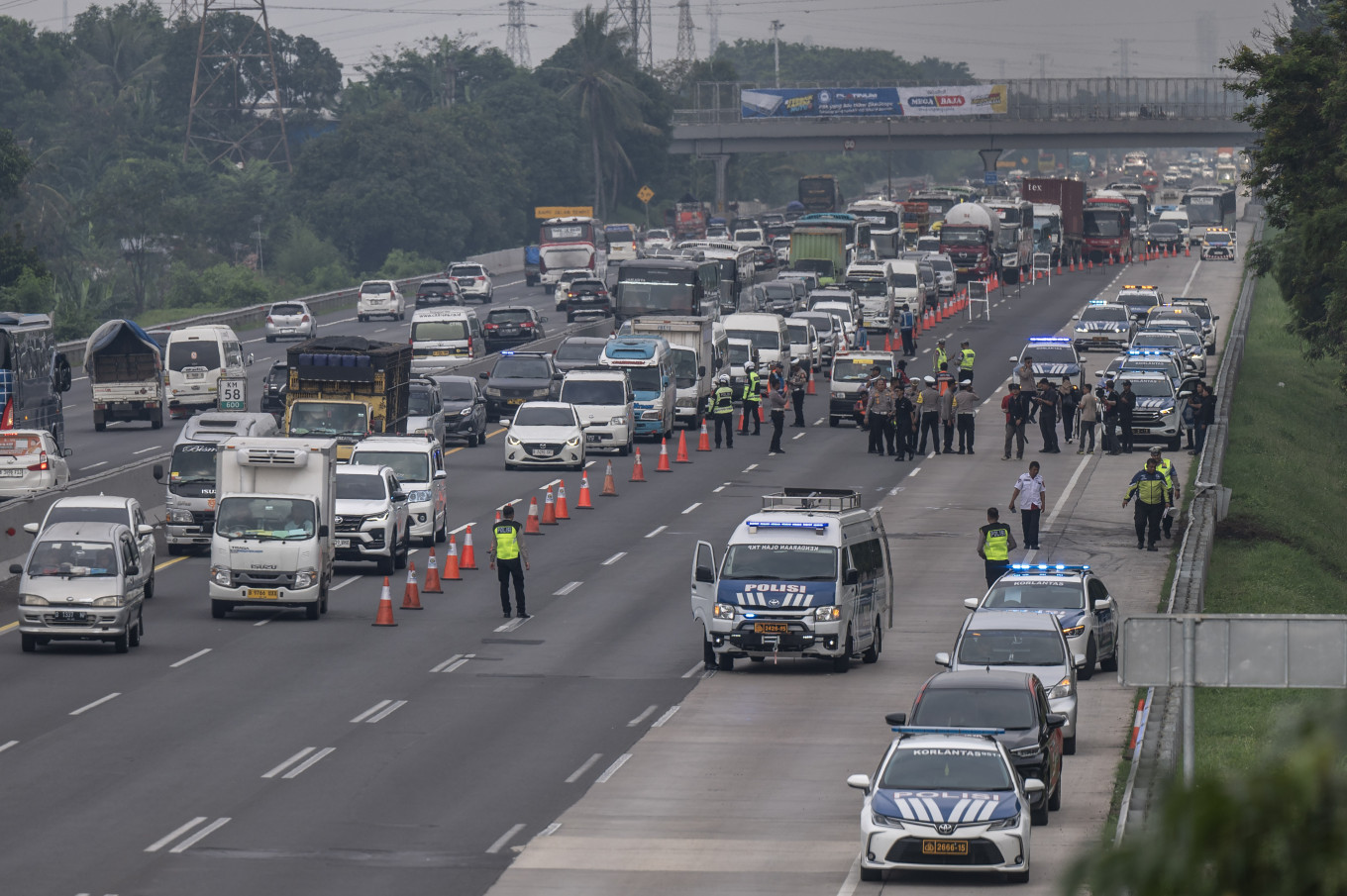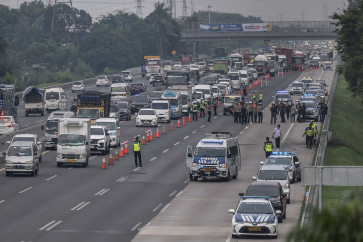Popular Reads
Top Results
Can't find what you're looking for?
View all search resultsPopular Reads
Top Results
Can't find what you're looking for?
View all search resultsCrash course: Why mandatory liability insurance is a game changer
A MTPL insurance system that is localized to socioeconomic realities in alignment with national safety goals can offer a pathway to safer roads and more secure communities in Indonesia.
Change text size
Gift Premium Articles
to Anyone
T
he government plans to make vehicle insurance mandatory starting in 2025, although President Joko “Jokowi” Widodo has indicated that no official discussions have taken place. The government is in the process of drafting the necessary regulations, which are expected to be finalized by early next year.
Road crashes pose a major global health and development issue, carrying substantial human and economic costs, particularly in developing nations. As the leading cause of death for individuals aged 15-29, road accidents claim 1.25 million lives and injure another 50 million people annually more than the combined deaths from malaria and tuberculosis.
However, the stark contrast is found in fatality rates, with developing nations seeing rates nearly eight times that in developed nations. The World Health Organization (WHO) reports that while low- and middle-income countries account for approximately 60 percent of the world's vehicles, they suffer 93 percent of road fatalities. Indonesia is no exception.
The National Police reported that from January to November 2023, there were 134,867 traffic accidents resulting in material losses amounting to Rp 258.18 billion (US$17.2 million), or around 3 percent of GDP.
This statistic underscores the urgent need for comprehensive regulatory frameworks that mandate motor third party liability (MTPL) insurance to enhance road safety and provide financial protection for the aftermath of accidents. MTPL insurance covers liabilities from the injury or death of third parties as well as property damage resulting from vehicular accidents. This protection is not merely administrative but also a pivotal element of national road safety strategies, aimed at curbing the financial and human costs of road traffic incidents.
A survey of MTPL insurance policies globally reveals diverse practices tailored to suit the distinct legal, economic and social landscapes of each country. In Brazil, for instance, comprehensive regulatory frameworks mandate extensive MTPL coverage, which is often managed through public-private partnerships or directly by government agencies. These systems offer wide-ranging benefits covering death, disability and medical expenses, funded through premiums that blend government guidelines and market determinations.
Malaysia’s approach to MTPL has evolved significantly with the phased liberalization of premium rates initiated in 2017. This policy shift allowed insurers to set rates based on individual risk profiles, leading to a more dynamic and competitive insurance market that provides customized coverage options and premium structures tailored to specific risk factors associated with different demographic groups and vehicle types.



















